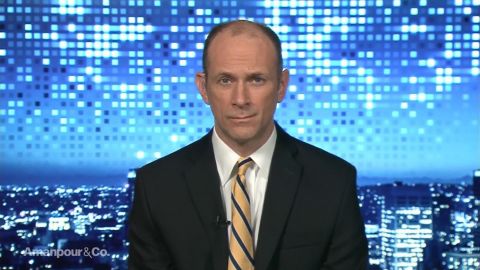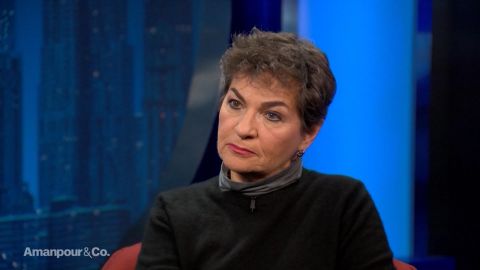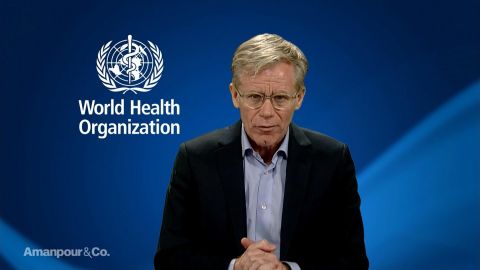Read Transcript EXPAND
CHRISTIANE AMANPOUR: I mean, you know, in a way, you have been here before. The world shuddered terribly for a long time in 2008. And we’ll get to how, you know, the sort of mechanics of getting it back but everybody’s asking about the oil prices. The steep drop, what does that mean for the global economy and what does it mean for individuals?
AUSTAN GOOLSBEE, ECONOMICS PROFESSOR, UNIVERSITY OF CHICAGO BUSINESS SCHOOL: Well, mostly it comes about I think because people in the oil markets anticipate there’s going to be a very dramatic drop-off of demand for oil. Partly, there’s this fight going on between Saudi Arabia and Russia, but mostly, I think it’s a bad sign for the world economy because they’re saying we think people go into their homes and not want to come out and they’re not going to be driving and the planes aren’t going to be flying and they’re not going to be using as many fuels. And so, that extent kind of outweighs, at first glance, especially in the United States where people drive a lot, you might think, well, if the price of gasoline goes down then wouldn’t that be good? And the positive nature of that as a — let’s call it the equivalent of a tax cut is outweighed, I think, by the fact that this is only happening because everybody is going into borderline panic mode.
AMANPOUR: So, you heard the French finance minister say, certainly, Europe must prove that it can do something to avoid a major economic crisis even an economic epidemic after the health crisis. Is this — I mean, when was the last time you saw an economic crisis as a result of a health crisis?
GOOLSBEE: You know, it’s been a while. I would say if you’ve seen other — you know, whether it’s SARS or Ebola or other virus outbreaks, in localized regions, for sure they have a significant economic impact. The thing that’s different about this is like, you know, maybe the flu pandemics in the late 1950s or going back to World War I times, this one is now spreading all around the world. And the thing that’s a little weird is, as I say, the economic implications in a way are similar to the implications on the health side of the virus, that the health side is much more dangerous for the elderly. I believe that this economic impact of this virus is much more dangerous for the advanced economies where so much more of their economic vitality is in service-based industries which are exactly the things that shut down when people get afraid.
About This Episode EXPAND
Austan Goolsbee explains how coronavirus is affecting the global economy. World Health Organization expert Dr. Bruce Aylward provides more information on the outbreak. Christiana Figueres, the architect of the 2015 Paris Agreement, sits down with Sheelah Kolhatkar to discuss long term solutions to the climate crisis.
LEARN MORE


